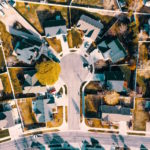A strong society needs strong, healthy families, communities, and local institutions. Since these institutions have largely broken down, their restoration is central to the conservative project. We need to care more about who is on town council than in Congress. We need to keep our dollars in our communities by purchasing as many of our goods as possible from local businesses and farms. We need to spend more time with our families and less on our social media apps and news feeds. This need to stay local is indeed central to the restoration of a sane social order.
Yet, in our globalized world, it’s often forgotten that people generally ought to stay in the place they are from. We need to restore a culture of being from a local community, of staying put. And we need to pass that on to our children so that local communities are built and maintained from one generation to the next.
Remaining in the community from which one comes matters deeply. It helps strengthen the conservative movement, which ultimately aims to restore a culture that is conducive to human flourishing. Learning to love a culture, a neighborhood, a local community takes decades, even generations. The most talented and educated young citizens of most Middle American communities often leave home and attend elite schools, where they are then enticed and recruited to take elite jobs in coastal metropolises. Many more from the middle and working class leave home to seek job opportunities, higher wages, and the other enticements of big city life. Yes, the so-called “brain drain” effect on these communities is devastating. But beyond the economic effects of “brain drain,” this phenomenon is simply bad for human beings. Most people are not meant to become cogs in the machine of a city of millions, hundreds of miles from their parents and siblings and churches and homes. This is not how we ought to live.
Rootedness has to matter if we want to resist radical individualism and globalism. The need to restore and reemphasize local community is central to conservatism’s success. Yet the conservative elite fail to emphasize the need for people to remain in their home towns. This oversight is detrimental: we cannot speak of rebuilding families and local institutions that restore society if we do not foster the stability of place necessary to build.
Start your day with Public Discourse
Sign up and get our daily essays sent straight to your inbox.Rooted Families
Conservatives and Communists alike know that family is the building block of society. And it’s widely known that the family is destabilizing thanks to modern phenomena such as no fault divorce and the sexual revolution. But an equally important source of family erosion receives less attention: it is very difficult to cultivate strong families when there is not a cultural emphasis on staying and living in the local community from which one comes.
Take the hypothetical of two similar nuclear families: both are faithful church-goers, intelligent conservatives who pass on faith and tradition to their children. One family emphasizes faith, education, professional success, and “making a difference in the world.” They have four good, devout, loving children. One gets into West Point and becomes a military officer, and pursues a career in the military. One obtains a PhD in history and takes a professorship at a prestigious university in Boston. The other two become lawyers: one takes a job at the Department of Justice in Washington, DC and the other goes to a large firm in Philadelphia.
The second family is likewise faithful, intelligent, and conservative. They also raise faithful, intelligent children, but emphasize local community and rootedness as a priority, a virtue. As the children grow up, one obtains a criminal justice degree and chooses to join the local police department. One takes degrees in history, chooses to stay in the local community as a teacher, pursues his PhD part-time with the intention of staying local, teaching, publishing, and perhaps helping to found a classical academy with the church community. The other two children obtain law degrees; one becomes a county prosecutor, while the other joins a small boutique law firm in the area and becomes involved in local politics.
This example is not meant to paint the first family as a failure. Some people are called to military or public service, which by necessity takes them away from their local communities. But the latter family ought to be normative. We should teach our children to love their community. We should cultivate in them a desire to make life and career decisions that will keep them rooted in their communities, so they can raise another generation of children to do the same.
Imagine your local church or religious community. Think of the other families with whom you live and worship. Now imagine that all these families, who by their example and parenting efforts raise wholesome, intelligent, faithful children, and instill in those children a desire to remain in their local community. Within a generation, you would have a community of small business owners, doctors, lawyers, public servants, first responders, tradesmen, who all live the same faith and who all grew up together. In another generation, those children have children, and the effect is multiplied. This local community would be renewed, in just a generation or two.
Strong local communities also make it easier for large families to form without mothers drowning in an unnaturally isolated life. In discussing early childhood development and the formation of families, Dr. Katharine B. Stevens—the founder of the Center on Child and Family Policy, recently pointed out this reality in an interview: it is good to have large, loving families, but it is unnatural and extremely difficult to form them in a vacuum devoid of extended family and community. While it is unnatural for couples to limit themselves to one or two children, it is also unnatural for a mother to have five, six, seven young children in her house, taking care of them constantly, without the regular presence of her own mother, sisters, cousins, aunts, and friends who live in the same community. While it does not take a village to raise a child, it takes an extended family to raise several small children. Rooted, local community restores a culture in which large families can thrive without the mothers becoming martyrs drowning in children’s needs, lacking the natural aid of extended family and community.
Local Associations
Beyond the benefits to families, local communities also provide necessary infrastructure for associations to thrive. Alexis de Tocqueville was struck by the American tendency to form local associations in the 19th century. Beyond the governments of towns, cities, and counties, citizens avoided centralization and preferred to solve problems by creating various associations “to promote public order, commerce, industry, morality, and religion.” This preference for the local is laudable and wise: the principle of subsidiarity explains that “matters ought to be handled by the smallest, lowest, or least centralized competent authority rather than by a higher and more distant one, whenever possible.” The more personal and local the solution, the better.
Here, too, remaining in one’s hometown is necessary for this kind of civic restoration: it takes years and even generations to know, love, trust, live with, and work with the people who form a local community. People only become part of a community when they are connected to it.
The absence of this rootedness makes it very challenging for communities to form in any meaningful sense. If a “community” is merely a city where people live at a given moment but do not intend to stay, the foundation is ever shifting. If a particular church community is filled with worshipers who will likely move across the country when the next job opportunity presents itself, how can its members meaningfully support each other, form associations to do charitable works, and truly become a part of the local community? If a neighborhood is regularly filled with “For Sale” signs and moving trucks, how can we form the bonds that lead us to love our neighbors, to chat with them on porches and sidewalks, to celebrate their new babies, to bring them meals in times of need? Communities are made of people; they must be made of the same people, the same families, over generations, if local communities are to thrive. If our population continues to comprise too many unrooted wanderers, we build houses on foundations of sand.
Staying Put to Build
This is a real, systemic issue. I have spoken to priests, to conservative intellectuals, to members of my church community who have never considered our culture of excessive transience a real problem. And there are people within those same conservative circles who, even if they have considered this in the abstract, do not live as if this is a priority. They are quite open to jobs in other parts of the world. They raise their kids in a way where there is no particular emphasis on staying in the community where one is from.
Some may respond that this viewpoint is excessively parochial and unnecessary. After all, talented people can make such amazing contributions to the world. Shouldn’t naturally brilliant strategic minds drawn to the military make a career of it, serving the common good by commanding armies around the world or working in the Pentagon? Shouldn’t the best and brightest policy thinkers head to government capitals and serve their state or country? Doesn’t it ultimately hurt the common good to refuse to leave home?
These challenging questions have their merit in certain cases. But we should be careful not to let the exception become the rule. Yes, some people have unique talents, temperaments, and callings to service that will take them out of their home community. Military and government service are excellent examples. Nobody can really call “the military” or Capitol Hill their home community, so obviously some people must leave their homes and go there, at least for a time, to serve. But we should not let the logic of these callings bleed into the general advice we give our children about work. Every community needs its own doctors, lawyers, businesses, tradesmen, engineers, police officers, and mayors. Some of those aspiring military generals should be local police chiefs; many who wish to work in Washington, DC would lead happier, more fulfilling lives by serving on town council. Most people, most of the time, should aim to obtain an education and profession that can serve their local community, so they can remain where they are from.
I am by no means the first to address the topic. Thinkers such as R.R. Reno have identified the need to prioritize “encourag[ing] families, rebuild[ing] local communities.” Wendell Berry has written beautifully about truly living and staying local, calling for us to strive to “belong to your place by knowledge of the others who are your neighbors in it.” Nonetheless, the importance of making personal decisions to stay local has not been emphasized enough. Just as conservatives cannot address the demographic crisis without action (getting married, staying married, and having children), this problem of the erosion of local communities must be addressed not only with essays and books, but with action.
So much is lost when local communities are not rooted and permanent. So much can be gained, rebuilt, restored by embracing where you are from. It is time for those of us who think about the future of civil society to make the decision. Become rooted in your local community. Join a good church community and stay there. Get to know your neighbors. Join local clubs and associations, or start new ones out of your living room. Then commit to staying where you are. If you are young, chart a career path where you can remain meaningfully a part of your local community, where extensive travel and relocation are not necessary. If you have children, show them by word and example the importance of building community and staying put. Encourage your friends, neighbors, and fellow parishioners to reflect on this, realize its importance, and try to make the same commitment. It is time to build. That starts locally. And we cannot build locally unless we make the commitment and the sacrifices to stay local, from year to year, from generation to generation.














